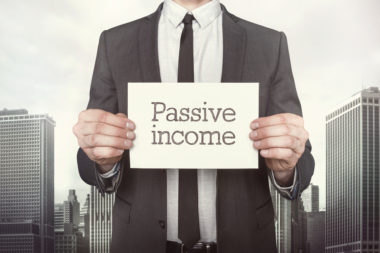Everything in your life has two kinds of value. The first is a financial value, how much your objects are worth. The second is sentimental value, how much you care about an object and what emotions/memories are attached to it. You want to make sure that the value of these items is appreciated the most by whomever they go to.
When you pass away, something has to happen to your belongings. If you want a specific course of action to be taken or certain items to go to specific people, you need to make a plan. That way, whether you want everything to go to your children, charity, or as a surprise to a long estranged relative, your wishes will be followed as closely as possible. This is called “estate planning,” and it’s not just for the rich and famous. Having a plan for your estate (a fancy word that basically means all of your possessions and finances) is a good idea for everybody, especially if you own things like a home or car.
Table of Contents
What is a Will?
A will is a legal document that details out what you want to happen after you have passed away. It can cover what kind of funeral/burial you want, what to do with your possessions and who is to care for any minor children you still have.
Now, there are different kinds of wills out there, but only some of them will hold in a legal court. The most common type of will is a “self-proving” or “testamentary” will. It’s a formally written will on legal documents that has been signed by a witness that confirms the person making the will is of a sound mind. After a person dies, there is a period of time where the will must be determined valid by a legal court, called the probate on the will. Depending on the circumstances of the death, how many assets the person has and how complex the will is, the probate can range from weeks to months before being approved.
A holographic will is the same as above, written on a legal document, but without the signature of a witness. These wills rarely hold up in courts as it’s harder to prove it was actually created by the deceased.
Oral wills consist of a person speaking their desires or will out to witnesses, with none of it contained on a legal document. Even if the will is recorded with video or audio, they are often not recognized as a legal will in most courts.
If you are concerned about what will happen to your belongings after you pass away and want to make sure specific things go to certain people, you need to fill out a will on a legal will document. Then, you need to get the will signed by a witness, and kept safe until you pass away. This guarantees that your wishes are followed and upheld in a court of law.
You find a list of forms related to
What is a Living Will?
A living will differs from a traditional will as it doesn’t deal with your possessions or how to handle your remains. Instead, a living will covers how you want your body and life to be handled in case you can no longer make decisions for yourself. That can include things like: being on life support or in a coma, suffering from a mental disease that prevents rational thought, or other incapacitations.
What is an Advance Directive?
The legal document for a living will is called an “advance directive.” It must be filled out in advance on the proper paperwork and is only valid if signed by a witness. Within the advance directive are instructions on what to do with the person in case of specific or general incapacitations. Before the advance directive is referenced, two separate physicians must agree that the person is incapable of making medical decisions.
You can find all of your advance directive living will forms at no fee with the U.S. Will Registry. It’s important to register by state, and to make sure that a qualified professional is handling your legal affairs.
What is Power of Attorney?
It’s also a common practice in an advance directive/living will to name somebody with power of medical attorney. This is usually given to a spouse, parent, child, or close friend, as the named person becomes responsible for their well being.
Similarly, durable power of attorney is somebody who, while you are incapacitated, takes care of your financial responsibilities. That includes things like paying your bills, monitoring outside income, possibly making investments, and caring for many other responsibilities you may have. This can be the same person who has power of medical attorney, or somebody else entirely.
What is a Trust?
A trust is a financial arrangement where a third party (or trustee) is given financial assets to watch over on behalf of beneficiaries. With the trust often comes conditions that must be met before the beneficiaries can access the funds, with can include your death or meeting specific obligations.
Money contained in a trust can often be accessed much quicker than assets detailed in a will. With a will, legal courts much first certify that the will is valid before assets can be released. If you want to help pay for your funeral costs, a trust can be a useful tool to give quick access to some cash.
Another benefit to using a trust is that you can control how much money people can pull from the trust on a regular basis and who has access to the money. You can also keep your money private, which can help prevent hurt feelings if you plan on giving specific people more money than others. This can help people learn to handle their inheritance and encourage using it responsibility.
What is a Living Trust?
A living trust is a style of trust that can handle much of what a will does, but without the waiting for a will to be determined valid. If you have a living will, after your death it’s transferred to a designated trustee who is then responsible for handling the trust and following your instructions, much like an executor for a will.
A living trust is a good option if you have very complex financial assets that need managing or want to get very specific with your asset allocation.
DIY Estate Planning or Getting Help From an Estate Planner
It’s a good idea to always have some sort of plan for your estate. If you have no plan at all, it will fall to the courts to decide who will inherit your assets. Generally, they try to split everything up equally, which may or may not follow what you want.
If you don’t have a lot of assets, a standard will should be enough to cover your needs. In a will, you can divide up your assets and assign them to specific people easily enough. With a little bit of research, you can fill out your own will and plan out your estate with relative ease. Yet, if you have complex finances, with money in multiple different assets, you might want to consult an estate planner. They can better guide you on whether you need to create a trust fund, what to include in a will, and make sure you can get the end results you desire after your passing.
Don’t wait until you are older to get your affairs in order, and that includes planning your estate. Life happens quickly, and unexpected deaths are an unfortunate part of the world. Take time now to create a plan and then update it accordingly overtime.
Image Source: https://depositphotos.com/





